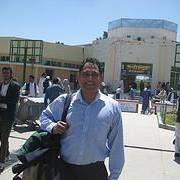Stopping these supplies caused us real trouble...Earnings dropped down pretty badly. Therefore the rebellion was not as strong as we had planned.
Another Taliban commander said:
We are able to make money in bundles...Therefore, the NATO supply is very important for us.
The commander said the money from the Afghan "security companies" which purportedly protect the supply convoys, which are under contract to the US Department of Defense, was a key source of funding allowing the Taliban to pay fighters, buy weapons and ammunition, and other supplies. Pakistan lifted the blockade in the summer of 2011.
"had already warned the military of being approached by "Taliban personnel" about safe passage payments. The contractor sent a memorandum to the military manager to record a Taliban request for "payment for the safe passage of convoys through there [sic] area" We have talked to other carriers that are making missions through those areas and they are paying the Taliban for safe passage." "
The report details numerous instances of middle level officers in the US military who objected to the arrangements and tried to call attention to the problem, but were met by a "brick wall." One Major Koger, the report states, "took it up his chain of command," but was "surprised and disappointed" that the "higher ups just didn't want to hear it."
Major Koger told the subcommittee that he "believed that the problem had probably been occurring for years." Secretary of State Hillary Clinton's statement that "one of the major sources of funding for the Taliban is the protection money" indicates that complicity went beyond even the higher military ranks in-country. One Lieutenant Colonel who said that the military contract managers of the 484th Joint Movement Control Battalion did not have the means to investigate allegations of protection payments said:
"That was way, way, way, way above my level."
In short, the report said;
"The contractors were pressed to run the missions regardless of the costs and regardless of their concerns about where the money went."
It is estimated that the funding for the Taliban through protection payments, paid for by the Department of Defense, could amount to hundreds of millions of dollars. The Tierney Report cites a price of anywhere from $1,500 to $15,000 per truck in extortion payments. 6,000 to 8,000 truck missions per month crisscross the country to bring supplies to US troops. This would bring the total of extortion payments from anywhere between $150 million per year to many times that. For comparison purposes, the Taliban is estimated to take in around $300 million per year in opium profits.
Since the release of the Tierney report it is far from clear that anything has changed. With its mountainous terrain, isolated villages, and extreme weather, Afghanistan was described by one US logistics officer as the "harshest logistics environment on earth." A US officer told the Tierney subcommittee:
"the heart of the matter is that insurgents are getting paid for safe passage because there are few other ways to bring goods to the combat outposts and forward operating bases where soldiers need them...[Afghan security companies] don't really protect convoys of American military goods here, because they simply can't; they need the Taliban's cooperation."
In 2011, Congressman Tierney delivered a rebuke to Secretary of Defense Leon Panetta for giving a mere "slap on the wrist" to the largest security contractor investigated in the Warlord Inc. report. Tierney once told CBS News "The business is war and war is business."
The line between insurgents and the Afghan security companies which "protect" the convoys gets blurred once convoys leave "the wire," the term for the relative safety of a US military base. The CEO of an Afghan security company said, of a warlord controlling the road from Kandahar to Tarn Kowt:
"No one can travel without Matiullah without facing consequences. There is no other way to get there. You have to either pay him or fight him."
(Note: You can view every article as one long page if you sign up as an Advocate Member, or higher).





